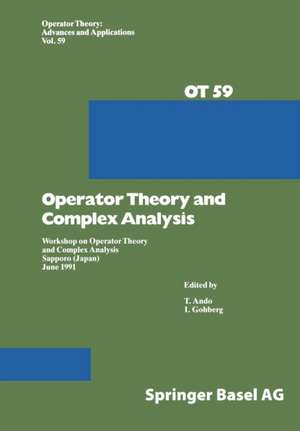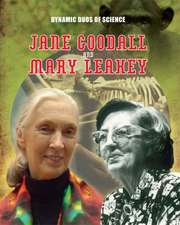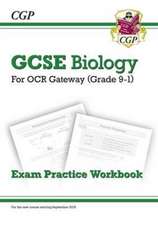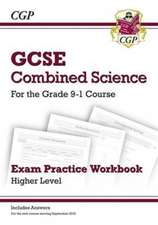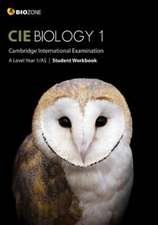Operator Theory and Complex Analysis: Workshop on Operator Theory and Complex Analysis Sapporo (Japan) June 1991: Operator Theory: Advances and Applications, cartea 59
Autor T. Ando, I. Gohbergen Limba Engleză Paperback – 30 oct 2012
Din seria Operator Theory: Advances and Applications
- 18%
 Preț: 890.54 lei
Preț: 890.54 lei - 20%
 Preț: 574.08 lei
Preț: 574.08 lei - 18%
 Preț: 1127.60 lei
Preț: 1127.60 lei - 15%
 Preț: 643.34 lei
Preț: 643.34 lei - 18%
 Preț: 961.55 lei
Preț: 961.55 lei -
 Preț: 395.63 lei
Preț: 395.63 lei - 15%
 Preț: 648.05 lei
Preț: 648.05 lei - 18%
 Preț: 737.71 lei
Preț: 737.71 lei - 15%
 Preț: 653.14 lei
Preț: 653.14 lei -
 Preț: 384.48 lei
Preț: 384.48 lei - 15%
 Preț: 644.82 lei
Preț: 644.82 lei - 15%
 Preț: 645.79 lei
Preț: 645.79 lei -
 Preț: 402.00 lei
Preț: 402.00 lei - 15%
 Preț: 650.04 lei
Preț: 650.04 lei - 15%
 Preț: 660.83 lei
Preț: 660.83 lei - 15%
 Preț: 639.08 lei
Preț: 639.08 lei - 18%
 Preț: 940.09 lei
Preț: 940.09 lei - 15%
 Preț: 648.05 lei
Preț: 648.05 lei -
 Preț: 388.90 lei
Preț: 388.90 lei - 18%
 Preț: 728.11 lei
Preț: 728.11 lei - 20%
 Preț: 574.08 lei
Preț: 574.08 lei - 15%
 Preț: 645.79 lei
Preț: 645.79 lei - 18%
 Preț: 1128.89 lei
Preț: 1128.89 lei - 15%
 Preț: 646.11 lei
Preț: 646.11 lei - 15%
 Preț: 648.89 lei
Preț: 648.89 lei - 18%
 Preț: 745.33 lei
Preț: 745.33 lei - 18%
 Preț: 1124.47 lei
Preț: 1124.47 lei - 15%
 Preț: 647.08 lei
Preț: 647.08 lei - 15%
 Preț: 662.62 lei
Preț: 662.62 lei -
 Preț: 392.75 lei
Preț: 392.75 lei - 18%
 Preț: 960.96 lei
Preț: 960.96 lei - 15%
 Preț: 646.43 lei
Preț: 646.43 lei - 18%
 Preț: 738.37 lei
Preț: 738.37 lei
Preț: 398.74 lei
Nou
Puncte Express: 598
Preț estimativ în valută:
76.30€ • 80.03$ • 63.52£
76.30€ • 80.03$ • 63.52£
Carte tipărită la comandă
Livrare economică 01-15 aprilie
Preluare comenzi: 021 569.72.76
Specificații
ISBN-13: 9783034896993
ISBN-10: 3034896999
Pagini: 420
Ilustrații: X, 406 p.
Greutate: 0.67 kg
Ediția:Softcover reprint of the original 1st ed. 1992
Editura: Birkhäuser Basel
Colecția Birkhäuser
Seria Operator Theory: Advances and Applications
Locul publicării:Basel, Switzerland
ISBN-10: 3034896999
Pagini: 420
Ilustrații: X, 406 p.
Greutate: 0.67 kg
Ediția:Softcover reprint of the original 1st ed. 1992
Editura: Birkhäuser Basel
Colecția Birkhäuser
Seria Operator Theory: Advances and Applications
Locul publicării:Basel, Switzerland
Public țintă
ResearchCuprins
Scattering matrices for microschemes.- 1. General expressions for the scattering matrix.- 2. Continuity condition.- References.- Holomorphic operators between Krein spaces and the number of squares of associated kernels.- 0. Introduction.- 1. Realizations of a class of Schur functions.- 2. Positive squares and injectivity.- 3. Application of the Potapov-Ginzburg transform.- References.- On reproducing kernel spaces, the Schur algorithm, and interpolation in a general class of domains.- 1. Introduction.- 2. Preliminaries.- 3. B(X) spaces.- 4. Recursive extractions and the Schur algorithm.- 5. H?(S) spaces.- 6. Linear fractional transformations.- 7. One sided interpolation.- 8. References.- The central method for positive semi-definite, contractive and strong Parrott type completion problems.- 1. Introduction.- 2. Positive semi-definite completions.- 3. Contractive completions.- 4. Linearly constrained contractive completions.- References.- Interpolation by rational matrix functions and stability of feedback systems: The 4-block case.- 1. Preliminaries.- 2. A homogeneous interpolation problem.- 3. Interpolation problem.- 4. Parametrization of solutions.- 5. Interpolation and internally stable feedback systems.- References.- Matricial coupling and equivalence after extension.- 1. Introduction.- 2. Coupling versus equivalence.- 3. Examples.- 4. Special classes of operators.- References.- Operator means and the relative operator entropy.- 1. Introduction.- 2. Origins of operator means.- 3. Operator means and operator monotone functions.- 4. Operator concave functions and Jensen’s inequality.- 5. Relative operator entropy.- References.- An application of Furuta’s inequality to Ando’s theorem.- 1. Introduction.- 2. Operator functions.- 3. Furuta’s type inequalities.-4. An application to Ando’s theorem.- References.- Applications of order preserving operator inequalities.- 0. Introduction.- 1. Application to the relative operator entropy.- 2. Application to some extended result of Ando’s one.- References.- The band extension of the real line as a limit of discrete band extensions, I. The main limit theorem.- 0. Introduction.- I. Preliminaries and preparations.- II. Band extensions.- III. Continuous versus discrete.- References.- Interpolating sequences in the maximal ideal space of H? II.- 1. Introduction.- 2. Condition (A2).- 3. Condition (A3).- 4. Condition (A1).- References.- Operator matrices with chordal inverse patterns.- 1. Introduction.- 2. Entry formulae.- 3. Inertia formula.- References.- Models and unitary equivalence of cyclic selfadjoint operators in Pontrjagin spaces.- 1. The class F of linear functionals.- 2. The Pontrjagin space associated with ? ? F.- 3. Models for cyclic selfadjoint operators in Pontrjagin spaces.- 4. Unitary equivalence of cyclic selfadjoint operators in Pontrjagin spaces.- References.- The von Neumann inequality and dilation theorems for contractions.- 1. The von Neumann inequality and strong unitary dilation.- 2. Canonical representation of completely contractive maps.- 3. An effect of generation of nuclear algebras.- References.- Interpolation problems, inverse spectral problems and nonlinear equations.- References.- Extended interpolation problem in finitely connected domains.- I. Matrices and transformation formulas.- II. Disc Cases.- III. Domains of finite connectivity.- References.- Accretive extensions and problems on the Stieltjes operator-valued functions relations.- 1. Accretive and sectorial extensions of the positive operators, operators of the class C(?) and theirparametric representation.- 2. Stieltjes operator-valued functions and their realization.- 3. M.S. Livsic triangular model of the M-accretive extensions (with real spectrum) of the positive operators.- 4. Canonical and generalized resolvents of QSC-extensions of Hermitian contractions.- References.- Commuting nonselfadjoint operators and algebraic curves.- 1. Commuting nonselfadjoint operators and the discriminant curve.- 2. Determinantal representations of real plane curves.- 3. Commutative operator colligations.- 4. Construction of triangular models: Finite-dimensional case.- 5. Construction of triangular models: General case.- 6. Characteristic functions and the factorization theorem.- References.- All (?) about quasinormal operators.- 1. Introduction.- 2. Representations.- 3. Spectrum and multiplicity.- 4. Special classes.- 5. Invariant subspaces.- 6. Commutant.- 7. Similarity.- 8. Quasisimilarity.- 9. Compact perturbation.- 10. Open problems.- References.- Workshop Program.- List of Participants.
